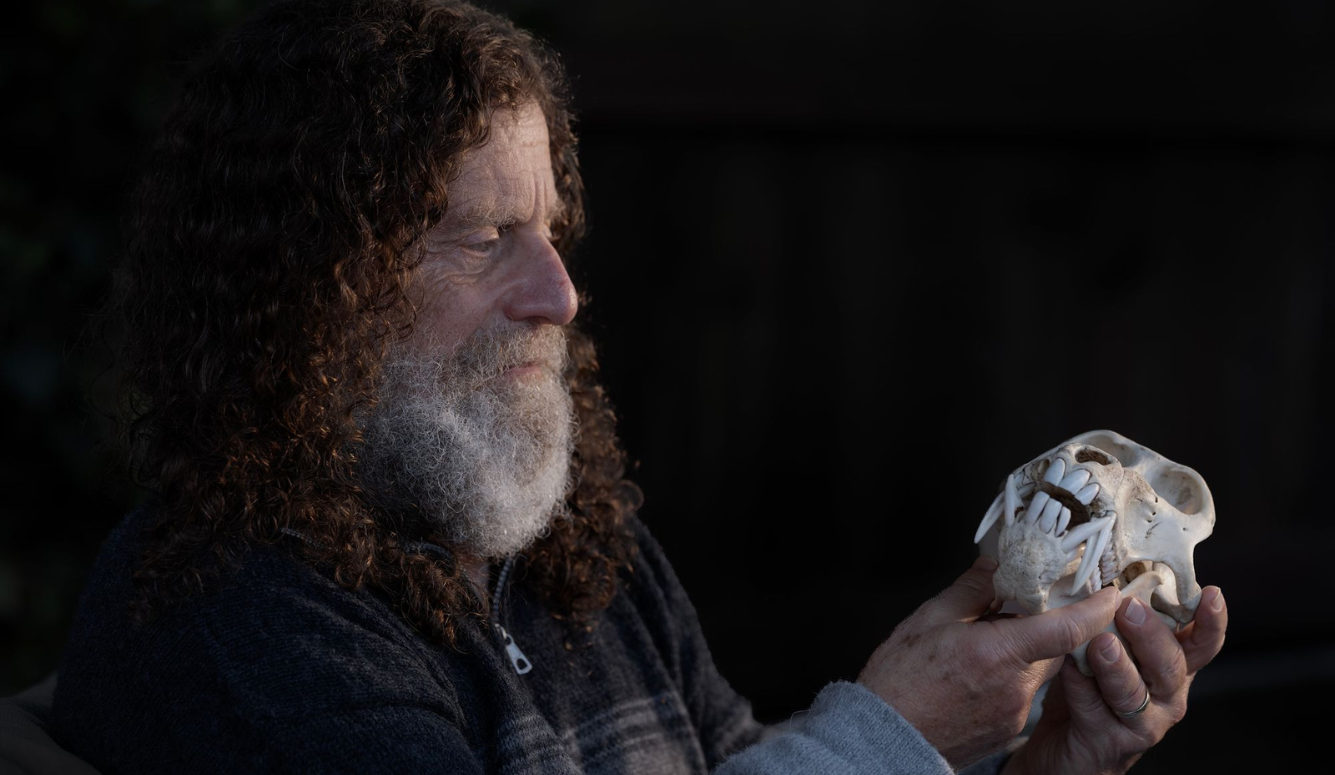Science / Tech
Robert Sapolsky is Wrong
A new book about free will fails to offer an original argument or make a convincing case.

A review of Determined: A Science of Life Without Free Will by Robert Sapolsky, 528 pages, Penguin (October 2023)
In Determined: A Science of Life Without Free Will, Robert Sapolsky argues that free will does not exist, and explores how he thinks society should change in light of that conclusion. Sapolsky is a professor of biology and neurology at Stanford University, known for his studies of hormones and behavior in wild baboons. In this new book, he makes an effort to address several different ways in which others have proposed that free will could be real, despite the laws of nature acting on our physical brains. But in his efforts to cover the bases, Sapolsky fails to offer an original argument supporting his claim that free will is not real. Instead he serves up a partial and rewarmed version of the argument made by Bertrand Russell in the 1940s. Sapolsky ornaments the argument with findings from the biological sciences, which he admits do not prove his intended point.
In 1946, Bertrand Russell claimed that a scientific understanding of human physiology would reveal ordinary physical determinism at work in every human choice. To Russell, where there’s determinism, there can’t be any free will. And determinism seems to work the same way in human physiology as it does anywhere else, without little gaps for magic. So Russell saw no room for free will in a deterministic world informed by science. Sapolsky makes basically the same claim, but he illustrates the point with examples of biological mechanisms. None of the particular examples are either necessary or sufficient for the overall argument, as Sapolsky says: “You can’t disprove free will with a ‘scientific result’ from genetics or any other scientific discipline. But put all the scientific results together, from all the relevant scientific disciplines, and there’s no room for free will.”
What exactly does “no room” mean? And what kind of “space” would free will occupy? We are not told. Nor does Sapolsky explain how determinism would keep free will out of that space. There seems to be an unstated premise: If an event is determined, it can’t be free. But if that’s simply true, then why write a book instead of a sentence? Rather than arguing that determinism does inherently preclude freedom, the book does two things: it reminds readers that biological processes are deterministic, and it tries to show shortcomings in several theories of free will. In order to do that, Sapolsky states his criterion: “What is needed to prove free will: show me that the thing a neuron just did in someone’s brain was unaffected by preceding factors.” This criterion, and Sapolsky’s use of it, are shot through with self-contradiction. Most of his attacks on theories of free will do not make any sense when examined. So, the book neither offers a distinct argument for the hard determinist position, nor a good reason to reject those theories that claim free will is compatible with determinism.
I’ll start an examination of Sapolsky’s self-contradictions with an easy one: the one he recognizes as such himself. The final chapter explores moral and political implications of his anti-free-will determinism: “There is no justifiable ‘deserve.’ The only possible moral conclusion is that you are no more entitled to have your needs and desires met than is any other human. That there is no human who is less worthy than you to have their well-being considered.” But moral declarations like this depend on certain assumptions—for example: that humans deserve to have their well-being considered at all. Sapolsky recognizes this: “Emotional responses feel real. Are real. Pain is painful. … It is logically indefensible, ludicrous, meaningless to believe that something ‘good’ can happen to a machine. Nonetheless, I am certain that it is good if people feel less pain and more happiness.” It might seem like this self-contradiction is limited to the moral realm; the forgivable result of having a big heart while also being an unwavering scientist. But there’s more to it. It’s actually just one instance of a recurring logical error that leads to self-contradiction in the supposed “scientific” aspects of Sapolsky’s thought as well.

Sapolsky recognizes that his care for people is not logically reconcilable with his reductionist determinism. He’s right that the two don’t work together, but he’s wrong about which of the two is ludicrous. If he thought a little more about his observations, he might see why. Pain is real. Pretending otherwise would be the epitome of nonsense. Before moving on to the question of whether or not the pain matters, we already have a contradiction with Sapolsky’s reductionist determinism. If he were consistent in his approach to understanding the human subject, he would say, “If pain exists, show me a neuron that just experienced pain.” After all, that is the only way he allows a function of the mind to be real; it has to happen in a neuron; that’s his criterion. But there is no neuron that experiences pain; there is no neuron that experiences anything.
Experience is a phenomenon that unquestionably exists. Yet it only exists at the level of the person, not the neuron. Neurons are absolutely involved. But it must be neurons (plural); basically all of the neurons in a person’s brain taken together, and only taken together. It would obviously be a mistake to look for experience in a neuron, find none, and conclude that there must not be any experience in general. In the same way, it is a mistake to look for free will in a neuron. It’s easy to see why. Before getting to free will, we should start with just will. Will is a conscious and deliberate intention to do something, usually followed by the act of doing that thing. Like pain, will exists; You do consciously intend to do things and then do them. Whether your will is truly free or not is a further question. For the moment, it's important to note that will exists, whether or not it’s free.





